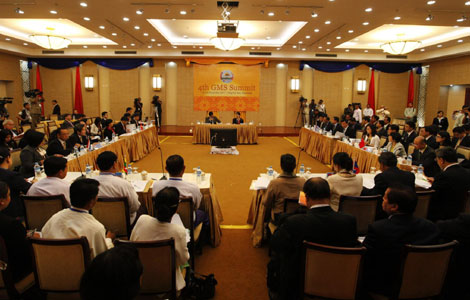Property prices in big cities declining
Updated: 2011-12-19 07:04
By Wang Ying and Hu Yuanyuan (China Daily)
|
|||||||||||
Tightening measures continuing to bite in housing market: survey
SHANGHAI / BEIJING - Tightening measures introduced to cool the property market are continuing to bite with 70 percent of 70 major cities surveyed reporting month-on-month price falls.
November saw 49 out of 70 cities monitored report falling prices for newly built residential properties from a month earlier, while prices in another 16 cities remained unchanged, according to figures released by the National Bureau of Statistics on Sunday.
This means that 15 more cities reported month-on-month price falls for new homes than in October.
Prices for new homes edged down 0.4 percent in November from the previous month both in Beijing and Shanghai. Nanjing, Jiangsu province, witnessed the largest drop with 0.7 percent.
In the secondary market, 51 cities experienced month-on-month property price falls in November, 13 more than October. Among the seven cities that reported price hikes in November on a monthly basis, only one was a coastal city, and their month-on-month price rise for second-hand homes averaged below 0.3 percent.
In year-on-year terms, four out of the 70 cities saw prices for new homes drop, two more than October. Prices for second-hand homes fell in 21 cities over the year, eight more than in October.
According to Chen Jie, executive director of Fudan University's Housing Policy Studies Center, official statistics showed a downturn or no change in property prices, a trend that is likely to continue if there is no easing of the tightening measures.
Not everyone views these price falls as an opportunity to enter the market.
Zhang Ji, who works with a multinational company in Shanghai, is cautious.
"To be honest, it makes little sense for a potential homebuyer like me, who witnessed the wild price hikes in the past two years, to get excited with tiny price falls," Zhang said. Without significant price falls her property dream will remain on the back burner for some time, she said.
Shanghai's second-hand home prices fell 0.5 percent month-on-month in November, but were up 2.6 percent from a year earlier. In contrast, Beijing saw prices for homes in the same category drop 0.7 percent month-on-month and 0.8 percent year-on-year.
Zhang said she believed the government would finally bring down property prices to a more affordable level, so she is not rushing to buy just yet.
He Chuan, 26, returned from the US after getting a master's degree in 2011 and got a job in Beijing. He now wants to buy a home.
"But I will wait for a better price, maybe until 2013. I don't think that property prices will rise in the near future if the government insists on the policy of property-purchasing limitations." He said.
During the just-concluded Central Economic Work Conference, an annual gathering of leaders to decide economic policy for the coming year, the government reiterated its resolve to make property prices return to reasonable levels.
"As the government's rigorous real estate measures continue, property sales, the floor space of newly started projects, land sales and property development will all drop in the first quarter," said Qin Hong, deputy director of the Ministry of Housing and Urban-Rural Development's policy research center.
Many believe purchase restrictions will finally be replaced by new policies, especially after the Central Economic Work Conference noted that the pilot program for property tax will be continued and possibly extended from Shanghai and Chongqing municipalities.
Purchase restrictions will not last forever because they do not gel with the market economy, Fudan's Chen said. On the contrary, property tax will play a larger role in replacing existing local government financing, and narrowing the gap between rich and poor, Chen said.
The government is setting up a national database for all homeowners and the existing restrictions on home purchases will be scrapped after the database is completed, Jiang Weixin, Minister of Housing and Urban-Rural Development said in October.
According to Jiang, the ministry started collecting information in 40 selected cities two years ago hoping to set up an information system that covers urban areas.
Although property tax is expected in the medium- to long-term, a unified rate will be extremely difficult due to the uneven development of various cities, Lu Qilin, research director at Shanghai Deovolente Realty Co, said.
For Thomas Lam, head of Research at Knight Frank in Greater China, the mainland residential market has entered a consolidation period.
"The first-tier markets are showing signs of larger price adjustments over the past months, and we expect this will spread to the second-tier cities," Lam said. "While continuing to curb demand, the government is doing more to boost the (housing) supply in response to housing difficulties," Chen Guoqiang, vice-chairman of the China Real Estate Society, told a forum held by China Real Estate.
The Ministry of Housing and Urban-Rural Development is gauging the effects of current real estate policies to see how they might be improved next year, the newspaper 21st Century Business Herald cited an unnamed source close to the ministry as saying.
According to international credit ratings firm Fitch, larger property developers will be better suited to meet the current challenges than smaller ones.
Xing Yu in Beijing contributed to this story.
Hot Topics
HIV/AIDS, Egypt protest, Thanksgiving, climate change, global economic recovery, home prices, high-speed railways, school bus safety, Libya situation, Weekly photos
Editor's Picks

|

|

|

|

|

|







